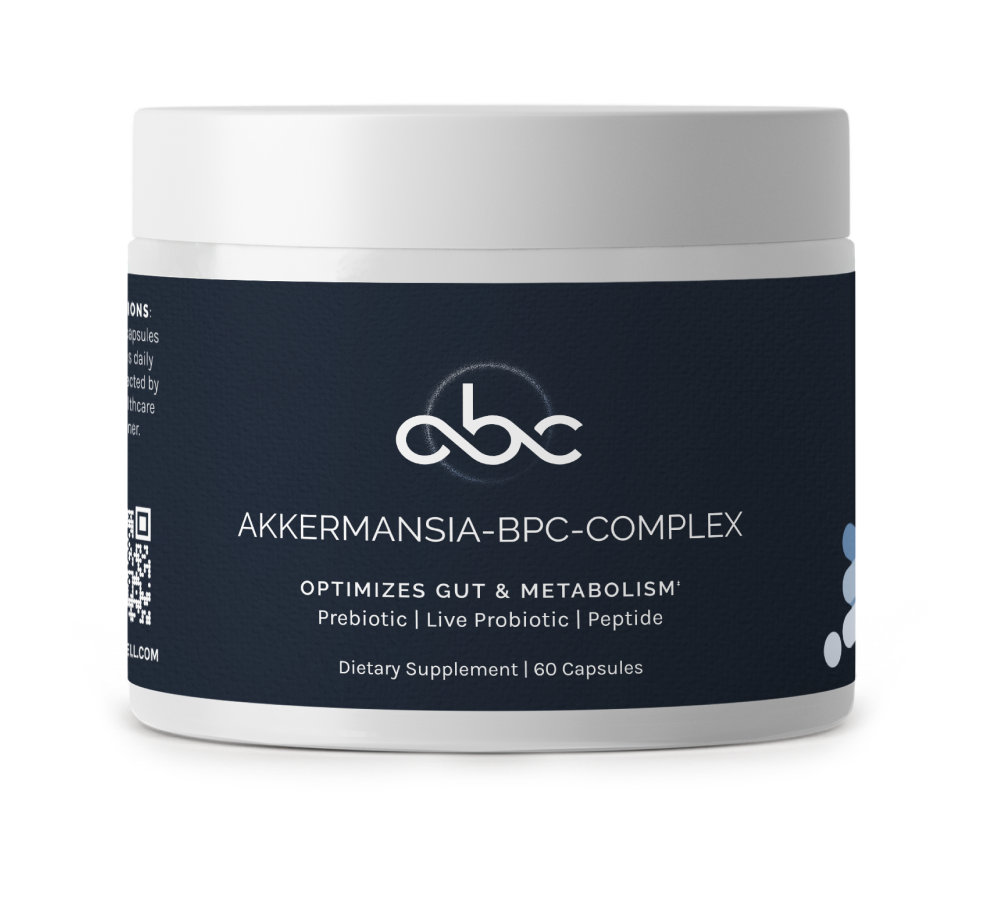Key takeaways
- Peptides for immunity offer targeted support by interacting directly with cells to strengthen innate immune responses and help maintain immune balance.
- Peptides like BPC-157, glutathione peptides, and antimicrobial peptides play distinct roles in gut health, oxidative stress management, and immune defense.
- Consistent use and pairing peptides with healthy habits—like sleep, nutrition, and movement—can enhance their effectiveness in supporting resilience.
- Peptide therapy is backed by emerging research and may support not only immune health but also cellular survival, energy production, and overall wellness.
Your immune system serves as your body’s built-in defense, constantly working to guard against harmful microbes and everyday environmental pressures.

In a world where immune challenges, lifestyle habits, and environmental factors can take a toll, supporting your immune function is more important than ever. That’s where peptide therapy comes in—a science-backed, natural way to help your body maintain its resilience.
If you’ve ever wondered, “What is a peptide, and how can it support my health?” you’re not alone. For many, peptides are still a new concept. But they’re now being explored for their ability to support immune modulation and overall well-being.
Let’s explore how peptides can naturally support your immune function and keep you feeling your best year-round.
What are peptides, and how do they support your immune system?
To understand how peptides support your immune system, we need to start with the basics. Peptides are short chains of amino acids, the building blocks of proteins. Think of them as messengers in the body—molecules that communicate with cells to help carry out specific functions, including how immune cells react to pathogens.
Unlike proteins, which are larger and more complex, peptides are smaller and more efficient. Their size allows them to interact more easily with epithelial cells and support innate immune responses. This direct line of communication with mammalian cells is part of what makes peptides appealing in the health and wellness space. They’re natural, effective, and versatile—supporting balance and resilience across various body systems.
Whether you’re brushing up or seeing these terms for the first time, here’s a quick glossary to ground the discussion:
-
Amino acids: The basic units that make up peptides and proteins.
-
Proteins: Larger, more complex molecules built from long chains of amino acids.
-
Epithelial cells: Cells that line surfaces in your body, like your skin and the lining of your gut—often the first to interact with outside threats.
-
Innate immune response: Your body’s first line of defense against invaders, reacting quickly and non-specifically to potential threats.
-
Pathogens: Harmful bacteria, viruses, or other organisms that can cause illness.
-
Mammalian cells: Any cells from animals with backbones, including humans. When we talk about how peptides interact with cells, we’re usually referring to these.
Also read: Are Peptides Safe? Benefits and Risks Explained
Peptides and your immune system
Your immune system is a complex network that includes antigenic peptides, dendritic cell maturation, and cytotoxic T cells, which work together to support immune responses and help maintain overall resilience.
Certain peptides, including cationic antimicrobial peptides, naturally support immune functions by acting as signaling molecules and assisting in immune modulation. They help the body maintain cellular function and immune balance. For example, antimicrobial peptides support peripheral blood mononuclear cells and aid in immune signaling.
A few more terms worth knowing:
-
Antigenic peptides: Small fragments of proteins that signal the immune system to respond. These are often what T cells recognize and react to.
-
Dendritic cell maturation: The process by which dendritic cells (immune cells that detect threats) become fully functional and help activate other immune cells.
-
Cytotoxic T cells: A type of white blood cell that helps kill infected or abnormal cells.
-
Cationic antimicrobial peptides: Positively charged peptides that can attach to and disrupt harmful microbes.
-
Immune modulation: Adjusting or regulating the immune response to stay balanced—not too weak, not overactive.
-
Peripheral blood mononuclear cells (PBMCs): Immune cells found in the blood, like lymphocytes and monocytes, that help strengthen immune defense.
Why consider peptides for immune support

Imagine going through the year feeling more resilient against seasonal challenges or everyday stressors. That’s the potential of peptides for immunity—they support the body’s natural functions and help maintain overall wellness.
Here are a few reasons to consider peptides as part of your immune support routine:
-
Targeted support: Unlike many traditional supplements that offer broad or generalized effects, certain peptides interact directly with your cells to support processes like innate immune responses and healthy cellular activity.
-
Grounded in research: Emerging studies suggest that specific peptides may support healthy immune function. Meanwhile, clinical trials continue to investigate how peptides influence immune modulation and overall wellness.
-
Whole-body benefits: Peptides don’t just support immune health—they also promote cellular survival, energy production, and physical resilience.
Additional terms to know:
-
Cellular activity: The various tasks cells perform to maintain health and function, such as communication, repair, and defense.
-
Clinical trials: Research studies conducted with human participants to test how well a medical strategy, treatment, or substance works.
-
Cellular survival: The ability of cells to resist damage, maintain function, and stay alive under stress or adverse conditions.
-
Energy production: The cellular process of converting nutrients into usable energy, typically in the form of ATP (adenosine triphosphate).
-
Peptide therapy: The use of specific peptides to support various functions in the body, including immune system balance.
If you’re new to peptides, this peptide therapy guide can help you choose the right ones for your wellness goals.
Peptides for immunity: Key types and their roles
Not all peptides work the same way. A closer look at their unique roles can help you focus on the ones most relevant for immune support.
Here are a few of the most recognized peptides tied to immune health:
-
Pentadecapeptide BPC-157: Known for supporting gut health, which is critical for immune balance. Research suggests it may assist in colonic epithelial cell function.
-
Glutathione peptides: Help manage oxidative stress and promote the body’s natural antioxidant response, both of which are essential for long-term immune function.
-
Antimicrobial peptides: Work as part of the body’s defense to bacterial threats, working with mast cells and immature dendritic cells to maintain balance.
By aligning your peptide use with your specific health needs, you can support both immune function and overall well-being.
Glossary of terms:
-
Pentadecapeptide BPC-157: A peptide often studied for its potential role in gut health, particularly in supporting colonic epithelial cell function.
-
Colonic epithelial cells: Cells that line the surface of the colon and form a barrier between the gut and the rest of the body, playing a role in digestion and immune defense.
-
Glutathione peptides: Peptides that contribute to the body’s antioxidant defenses, helping neutralize oxidative stress and support immune function.
-
Oxidative stress: An imbalance between free radicals and antioxidants in the body, which can negatively affect immune function and overall health.
-
Antioxidant response: The body's natural way of neutralizing harmful free radicals to protect cells and maintain balance.
-
Antimicrobial peptides (AMPs): Naturally occurring peptides that help defend against pathogens like bacteria, supporting the body’s innate immune system.
-
Mast cells: Immune cells involved in antioxidative responses and allergic reactions. They also help regulate immune responses to pathogens.
-
Immature dendritic cells: Precursor immune cells that capture and process antigens, playing a key role in triggering immune responses once matured.
How to use peptides for immune support effectively

Incorporating peptides into your routine can be straightforward, especially when you understand the different types, formats, and serving sizes. Here’s a practical guide to get started:
-
Choose the right peptides: Consider options like oral BPC-157 for targeted immune support, depending on your specific wellness goals.
-
Use consistently: Regular use matters. Consistency gives your body time to respond and experience peptides’ benefits.
-
Track your response: Pay attention to how you feel over time. Monitor changes in energy, physical resilience, or immune responses to help you understand how peptides are contributing to your overall wellness.
-
Pair peptides with healthy habits: Peptides work best alongside a healthy lifestyle—think nutrient-rich meals, regular movement, quality sleep, and stress management.
Final thoughts on peptides for immune support
If you’re considering peptides, start by identifying your wellness goals. Whether you're focused on immune function, physical resilience, or overall well-being, peptide therapy offers a research-backed way to reinforce the body’s natural processes.
It’s always wise to speak with a healthcare provider or peptide specialist to find an approach that aligns with your needs. With the right guidance, peptides can become a straightforward and supportive part of your daily routine.
SOURCES:
https://www.frontiersin.org/journals/immunology/articles/10.3389/fimmu.2023.1119574/full
https://pmc.ncbi.nlm.nih.gov/articles/PMC7747025/
https://www.webmd.com/a-to-z-guides/what-are-peptides
https://scholarworks.utrgv.edu/cgi/viewcontent.cgi?article=1125&context=chem_fac
https://pmc.ncbi.nlm.nih.gov/articles/PMC10300729/
https://www.health.harvard.edu/blog/considering-collagen-drinks-and-supplements-202304122911











